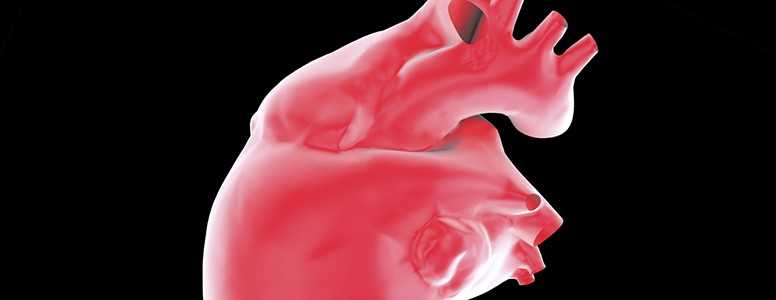A new study has found that, in addition to serve as a blood pump, the heart can be regarded as an endocrine organ capable of influencing several metabolic functions.
The study suggests that specific hormones called natriuretic peptides (NPs), secreted by heart muscle cells to help maintain fluid volume and blood pressure, may also have an effect on fat cells.
This new insight into cardiac metabolic signalling could help limit excess fat gain thereby lowering risks of developing insulin resistance, type 2 diabetes or non-alcoholic fatty liver disease (NAFLD).
Scientists knew that there is an increased expression and secretion of hormones produced by endocrine-like cells in the heart, including NPs, in various cardiovascular conditions like heart failure, myocardial infarctio, and hypertension.
Now, researchers at Sanford Burnham Prebys Medical Discovery Institute, in Florida, US, are discovering that the reverse – a lack of NPs – in fat tissue can contribute to promoting fat accumulation and other metabolic problems.
In contrast, they showed in animals that enhancing levels of NPs in fat tissue sets off mechanisms that are thought to protect against obesity and insulin resistance.
In addition to controlling blood pressure, some NPs can support the conversion of energy-storing ‘bad’ white fat into energy-burning ‘good’ brown fat. Their secretion also involve incretin hormones like glucagon-like peptide-1 (GLP1).
To study this interplay, researchers simulated an increase in NPs by disabling an important receptor in the fat tissue of mice known as natriuretic peptide receptor C (NPRC).
The NPRC is responsible for the clearance of NPs from the circulation leading to lower levels of NPs. Eliminating NPRC from the animals’ fat tissue improved insulin sensitivity, reduced fat gain and increased the activity of fat-burning brown fat.
Furthermore, the animals displayed a higher energy expenditure, or energy out, and they had less inflammation in the body. All those benefits were seen despite the mice being fed a highly calorific diet.
Blunting NRPC receptors also seem to promote better liver function, as the mice did not show any signs of getting NAFLD throughout the experiment.
Similarly, in humans, lean individuals tend to have higher NP levels in their blood and the higher the NP clearance in fat tissue, the weaker the NP signalling and the more elevated the odds of conditions stated earlier.
However, more research is underway to determine whether tampering with NPRCs and NPs could effectively improve metabolism without giving rise to negative effects on blood pressure or other cardiometabolic functions.
What's new on the forum? ⭐️
Get our free newsletters
Stay up to date with the latest news, research and breakthroughs.









